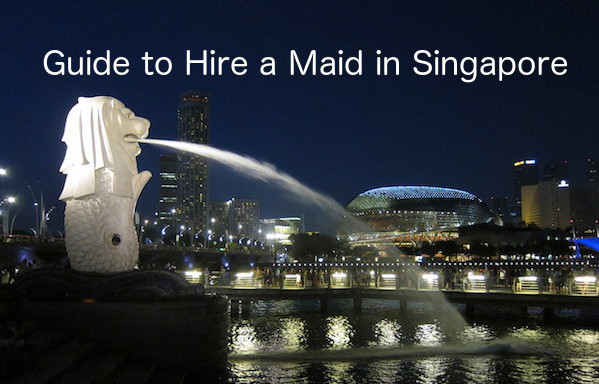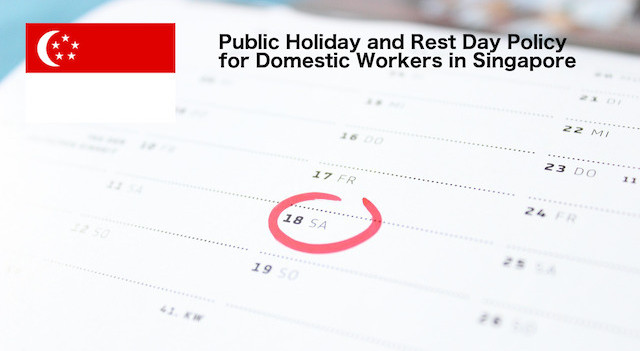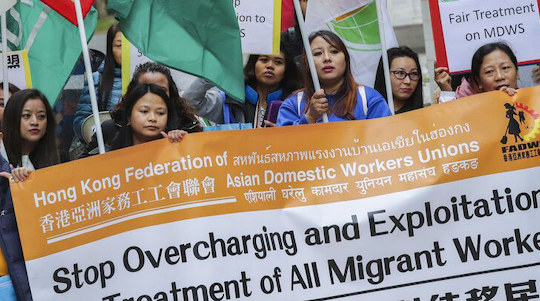
In the modern age of technology and fast life, a quarter of a million houses in Singapore have incorporated the services of a foreign domestic helper. The maid's duties in Singapore include cleaning and caring for the kids. Given the fact that the help from a domestic helper is quite resourceful, it needs to be mentioned that the process of hiring maid in Singapore and the laws related to it are something you should know before hiring one.
What should I know about Foreign Domestic Workers in Singapore?
The working policies of the hired maids must be full-time, and they must live with their employers.
Indonesia and the Philippines are the highest providers of domestic workers, while other countries such as Myanmar, Malaysia, and Thailand are trailing behind. In Singapore, it is a women-only policy when it comes to hiring a domestic worker. Workers usually move to Singapore for better job conditions and opportunities. Working in Singapore as a hired help requires formal education with recognised certificate. Most of the maids working there have higher education course certificates and degrees. They are also provided government supported training before leaving for Singapore. This training includes household work, people care, and other skills.
There are some policies for employers who have no children to hire legally part-time maids who come once a week to perform the duties of a hired help.
Who is Eligible to Hire a maid in Singapore?
Singapore has a ministry of manpower (MOM) that undertakes the job to certify an employer’s application in order to hire them for the role of a domestic helper.
A few of the requirements are that the employer must be at least 21 years old, a resident of Singapore, have a legal amount of standing money in the bank, and have a steady state of income. However, if the applicant does not have a source of income, is over the age of sixty, and does not reside with employed adults, he/she is also eligible to apply. Applicants can apply through the sponsorship scheme, where the applicant’s child, grandchild, or sibling can act as a second sponsor.
The employer has to provide the employee an accommodation at his/her house to be eligible to hire.
What are the Domestic Helper Employment Laws in Singapore?
The employment act of Singapore does not enlist the role of a foreign domestic worker; hence they are not regularized as regular workers. Furthermore, the employers are the one who takes over the responsibility of hiring a domestic worker.
The workers are also not covered under the Work injury Compensation act in Singapore hence the employers have to take out security bonds and medical as well as personal accident insurance for the helpers. Singapore's work permit directs that the employer is responsible for any medical costs incurred by their domestic workers. Medical examinations are also a must for the workers twice a year.

Since it is an unregulated industry, there is no concept of a minimum wage that is provided by the government. In accordance with this, the countries that send domestic workers have a pre-set guideline that dictates the minimum wages set. The employee and the employer must come to a conclusion regarding the appropriate salary. The average wage of a helper is between 600$ and 1000$. Wages are set according to different terms such as affordability, the helper’s experience, and the needs of the family that is hiring.
Employing foreign domestic workers on a part time basis is not allowed in Singapore and the workers are entitled to work only within the premises of the employer’s property. Even working under someone who is related to the original employers is not permissible, unless the job is to provide supervision to the children.
What are the Qualities of Finding a Maid in Singapore?
You have to find a maid in Singapore who at least has the following capabilities such as she is:
- a good and suitable match for the family
- equipped with training related to taking care of the house and its inhabitants, such as the family and the children.
- trustworthy among the family members. This can be done by exhibiting good behavior and the determination that is expected of the worker.
The total number of domestic workers available is quite low in comparison to the workforce available outside. However, finding maids and workers already available in the country can be advantageous as the work permits can be transferred through negotiable discussions. You can also conduct the interview at your house to equip yourself with the employment history of the workers who have worked in Singapore before.
In cases when employers use Helperplace, they are provided with the scope of directly contacting the maids and remain in contact till the process of hiring is completed. These interactions help employers narrow their vision and thinking and be specific as to what kind of help they want. The interview process that is conducted at the last is most suitable for a one-to-one conversation to decide wisely in order to hire a worker.
Do I have to use a Maid Agency to find a Helper?
Singapore does not entitle you to have to use an employment agency to find and hire a domestic worker. In Singapore not using an agency to find and employ a domestic worker is more advantageous in hiring a helper. Direct hires are cheap for you and for your maid, there are no placement fees (or no salary deduction) that need to be counted and considered. You can easily find online the right maid in Singapore.
Nevertheless, an agency will be useful, if you have no time to handle the hiring process (screening, interview, paperwork, work permit... ). Please note that when hiring from an employment agency you should make sure to check the track records first (ethical agencies, fees, availability...).
How to Apply for a Domestic Helper’s Work Permit?
The domestic helper’s work permit has to be applied and arranged by the employer in person or through online or in some cases through legitimate agencies. We recommend you to do it yourself since the process of hiring is straightforward, easy and quick. The forms take just one day to be processed and can be done from your house.
To apply for a work permit for your Maid, log in to the Government portal Ministry of Manpower Online Application. The employers should simultaneously check and validate with the helper’s embassy in Singapore, about the issue of any additional documents or procedures required by the government.
There are several other steps prior to hiring a maid. The employers are entitled to take out a bond worth 5,000$, which they can lose if the employment rules are broken. It is also entitled to any medical or insurance coverage that might occur if required.
Furthermore, the employers must also attend a brief orientation program (first time hiring) where they equip you with the guidelines and the rules of keeping a domestic help. The helpers, on the other hand, have to attend a settling-in program.
After your initial work permit application is approved, you will receive an in-principal approval letter that is needed by the worker once in Singapore.
Does my family need to sign an Employment Contract?
Employers and domestic maids in Singapore do not have to sign an official employment contract; however, they have to sign some certain standardized agreements supplied by some embassies. This is in accordance with the safety of a foreign national in Singapore.
The Ministry of Manpower of Singapore directs and advises that the employing family formulate a draft with the signatures of both the employer and the helper. Sample contracts can be provided as templates. These contracts include the expected duties, obligations, and benefits of both the employer and the helper.
If you are hiring a maid from the Philippines, you must sign the standard employment contract provided by the Embassy of the Philippines.
What are the Employer’s Responsibilities in Singapore?
There can and will be differences between the two parties. Hence, hiring an international maid or a helper comes with quite a few challenges and responsibilities on the part of the employer. Some of these responsibilities include paying the salary on time and providing a sufficient diet, which is what employers need to be aware of.
There has to be an agreement that directs the employer to advise and arrange for their helper's half-yearly medical exams. The employers are the ones who will be bearing the charges for the medical expenses. This motivates employers to take out more through insurance packages than what is required.
The employers must also pay a foreign domestic worker levy to the government of Singapore. The standard rate is 300$ per month. However, many families such as the ones with children or other care needs can qualify for the concessionary rate of 60$.
The maids in Singapore are entitled to one rest day in a week. This off day is not just to promote the well-being of the helper but also gives her the opportunity to get out of the house, re-energize, and catch up with her near and dear ones. However, if you want to make her work on her off day as well, you will have to pay her in lieu or provide her an advance. You also could consider raising your maid's salary periodically as a reward for good performance and loyalty in service.
Can I deduct money from my helper’s salary?
Employers are not entitled to deduct any amount related to her food costs, medical expenses, agency fees, work permit applications, or repatriation from Singapore.
The employers have to ensure and assure the Ministry of Manpower that their helpers will be paid every month the amount they deserve. The employers must clear out any or all transactions related to the salary within seven days after the last day of each month of work. Since the maids send a considerable amount of this money home to provide for and support their families, you as an employer should, on humanitarian grounds, never delay their payments.



